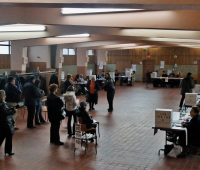Over the next months, Items will publish essays based on research presented at a spring workshop on the theme “Democratic Participation: A Broken Promise?” cosponsored by the SSRC’s Anxieties of Democracy program’s Participation group and the German-based Democratic Anxieties. Here, Larry Bartels, cochair of the AOD Participation group, draws on recent work on the extent to which established democracies are disproportionately responsive to the preferences of their wealthiest citizens. While this is not news for observers of the United States, Bartels finds very similar patterns across what are often assumed to be the more egalitarian democracies of Europe.













